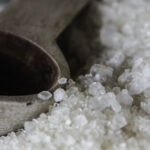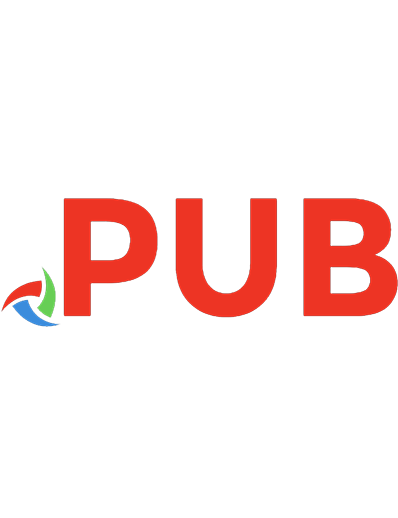Are facts always true? This is a question that has been debated for centuries. Facts are simply pieces of information or statements that report something that has actually occurred or that is believed to be true. However, the truthiness of a fact can sometimes depend on perspective, interpretation, or the reliability of the source. In this article, we delve into the complex world of facts, exploring their ever-evolving nature and the importance of critically evaluating the information we consume. So, strap in, because it’s time to embark on a fascinating journey into the shifting landscape of the truth.
Table of Contents
- 1. Plastic Facts: Exploring the Lives of Fake News
- 2. Fact Checker’s Dilemma: Verifying Information in the Era of Mass Media
- 3. The Truth Behind Manipulated Data: How Facts Can be Tampered with in Digital Age
- Future Outlook

1. Plastic Facts: Exploring the Lives of Fake News
In today’s world, the importance of staying informed through reliable sources cannot be overstated. With the rise of social media and the internet, misinformation has become a growing concern as fake news continues to spread like wildfire. This is especially prevalent when it comes to plastic waste and its impacts on our environment and ecosystems. As we delve deeper into the world of lies masquerading as facts, let’s explore some intriguing plastic facts that should make us think twice before sharing that next “fake news” update.
- 8 million tons of plastic are produced daily: This staggering statistic highlights our collective addiction to plastic consumption. FromSingle-use plastic bags and microbeads to plastic straws and cups, plastic pollution is becoming a significant issue worldwide. Just last year, the Great Pacific Garbage Patch was discovered, a massive accumulation of plastic debris that had been blown halfway across the Pacific Ocean.
- Plastic pollution affects marine life: Plastic waste poses a serious threat to marine ecosystems, as it can be ingested or entangle fish and other sea creatures. Once swallowed, plastic can disrupt the digestive systems of animals, leading to malnourishment, death, or other health issues. Moreover, the release of microplastics into rivers and oceans contributes to the accumulation of harmful chemical residues accumulated from industrial processes.
To combat this growing issue, it’s crucial to become more educated on the subject and take steps to reduce and recycle plastic waste. As we strive to protect the delicate balance of our planet, it’s our duty to spread accurate information and promote responsible consumption. So, the next time you see an inflammatory “fake news” story about plastic pollution, consider the consequences and join the fight against this pervasive global problem.
2. Fact Checker’s Dilemma: Verifying Information in the Era of Mass Media
The rapid evolution of technology has significantly transformed the way we access and share information. With the rise of mass media, the internet has become the primary platform for the dissemination of news, opinions, and misinformation. The role of fact-checkers has become increasingly important in this digital landscape, as people increasingly rely on online sources for factual information. However, the fact checker’s dilemma lies in the challenge of verifying the accuracy of information amidst the plethora of sources and the constant barrage of misinformation that floods the web.
In this era of mass media, fact-checkers face numerous obstacles in their quest for veracity. First and foremost, they must sift through an overwhelming volume of content to identify potential falsehoods. The sheer quantity of information available can be daunting, and it is often difficult for fact-checkers to determine which sources are credible and worthy of investigation. Additionally, the issue of linguistic nuance can further complicate the fact-checking process. In some cases, a statement can be technically true, but its interpretation may lead to misinformation. From clickbait headlines to deceptive advertising, fact-checkers must grapple with the myriad of tactics employed by those seeking to deceive the public.
Addressing the fact-checker’s dilemma requires a multifaceted approach. Fact-checkers must develop and maintain strong relationships with reputable sources, ensuring that they have access to accurate and up-to-date information. Additionally, they must invest time and resources into research and investigative methods to verify the credibility of the claims being made. By doing so, fact-checkers can continue to serve as a valuable resource for the public, helping them to discern fact from fiction and make informed decisions in the digital age.
3. The Truth Behind Manipulated Data: How Facts Can be Tampered with in Digital Age
“`html
In the digital age, we are constantly bombarded with information, much of which is seemingly reliable and accurate. However, the truth is that data can be easily manipulated in this digital world, sometimes leading to unintended consequences. Understanding the intricacies of how information can be altered is crucial to maintaining the integrity of online communication and content.
There are several ways in which data can be tampered with in the digital age. For instance, hackers can infiltrate secure servers and alter information without the owner’s knowledge. In addition, social media platforms can become breeding grounds for misinformation as users spread false news without fact-checking it first. Furthermore, algorithms used by search engines to rank results can inadvertently prioritize biased or sensational content over accurate information.
- Hackers: Although not all hackers are malicious, some seek to manipulate data for personal gain or spread misinformation. They can target companies, governments, and individuals alike, altering data to suit their needs.
- Social Media: As social media platforms have grown in popularity, so has the prevalence of misinformation. Unverified sources, anonymous trolling, and the spread of memes and conspiracy theories have made it challenging to separate fact from fiction.
- Algorithms: Although these complex computer programs are designed to be unbiased, their underlying code may inadvertently prioritize certain types of content. This can lead to false information being ranked higher than accurate data in search results.
To combat the manipulation of data in the digital age, it is essential for both users and technology companies to stay vigilant and educated. Users should fact-check information before sharing it and be wary of unverified sources. Technology companies should strive to build algorithms and platforms that prioritize factual accuracy rather than clicks or sensational content. By taking a collective responsibility for maintaining the integrity of online information, we can work together to preserve the truth in a digital world where it is all too easily distorted.
“`
Future Outlook
In summary, the “Are Facts Always True?” article has explored the complex landscape of fact verification and the ongoing challenge of determining the validity of information in today’s world. Through the evaluation of various sources, the importance of skepticism, and the role of technology in fact-checking, the reader has gained a deeper understanding of the nuances and ambiguities surrounding facts. It is essential to approach information with a critical mind and to seek out multiple perspectives to ensure the accuracy and reliability of presented facts. As technology continues to advance, the ability to distinguish fact from fiction will become even more crucial, so it’s up to us to stay informed, engaged, and vigilant in our pursuit of the truth. Thank you for joining me on this journey to explore the ever-evolving realm of facts and their relevance in our lives. I hope you have gained valuable insights and will continue to be an active participant in the inquisitive community that seeks to uphold the truth. Happy fact-finding!
















